What Is a 3PL and How to Find a Great One in 2023 [Ultimate Guide]
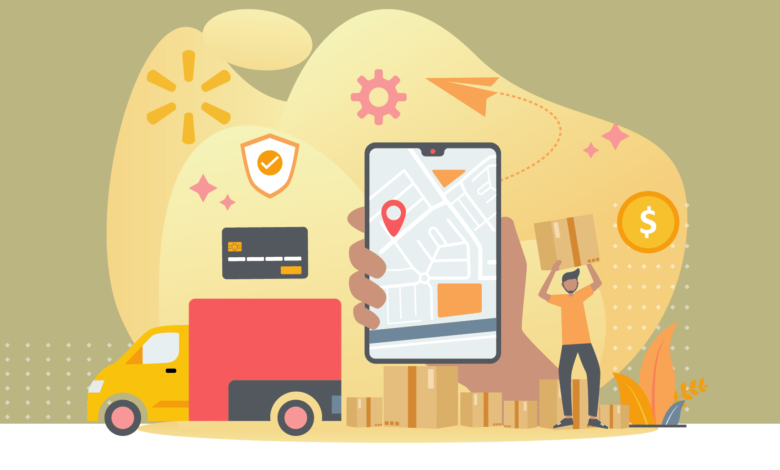
In the world of ecommerce, third party logistics providers (or simply 3PLs), are absolutely essential. 3PLs will handle all of your fulfillment for you including storing, picking, packing, and shipping your products. They can also do a lot more things for you which you might not even be aware of (more on that later).
It doesn’t matter if you’re running your ecommerce business as a side-hustle and simply don’t have the time to personally ship your products, or if you’re doing it full time, or whether you’re an 8 figure business owner who has their own warehouse–a 3PL can serve a valuable purpose for your business.
In this article we’ll give a complete run down on what to decide when choosing a 3PL.
Related Podcast: (Episode 330) Focusing on Logistics and 3PLs to Increase Profitability
Topics Covered
What is a 3PL and What Can They Do for You?
As mentioned, a third party logistics provider is simply a company who will handle all of your fulfillment. This includes everything from receiving your inventory into stock (whether it be from China or domestically), storing your items, picking and packing your items, and, of course, shipping your items.
Probably the most popular 3PL is Amazon FBA. We’ll get into the good and the bad about Amazon FBA later.
There’s a lot of things to use a 3PL for aside from the obvious reason of shipping items and I actually try to avoid using my 3PLs for shipping whenever I can (Amazon FBA is often the best for this as I'll get into later). Some of the most popular things to use a 3PL for are:
- Shipping items
- Warehousing your items (which often is MUCH cheaper than crazy Amazon storage fees)
- Labeling items
- Receiving your shipments from China and/or breaking them down into smaller shipments
- Inspecting and storing returns
- Mail handling/address
- A staging area for product photography
Even if 100% of your sales are from Amazon FBA you can probably use most of the services above.
The biggest for Amazon sellers is to save on the ridiculous storage fees Amazon charges. Most 3PLs charge around $15 to store a pallet (and many charge less than this). Amazon charges about $45 from January to September and $165 during ‘peak’ (October to December). Truth be told, there is less time involved with shipping your products in one go to Amazon but during October to December I personally think you’re crazy if you’re storing unnecessary inventory at Amazon.
If you're ordering goods from China then a 3PL serves as a perfect middle man in between you and Amazon. They can break your shipment down, label items as needed, and do some light inspection even.
Most 3PLs can also handle your mail and you can subsequently use this address in your online communication. Some may also be able to scan your mail for you or forward it to you, especially nice for international folks.
Many 3PLs are also in many ways like a coworking space but for logistics. In my previous company I rented 2000 sqft of warehouse space and I used it for whatever I wanted. Along with, of course, storing my inventory I also used this space to set up a little staging area for photography and I even had a little desk to work.
Pro-Tip: Use Your Chinese Supplier as Free Storage
Ordering months of inventory from a supplier in China? Rather than shipping all the inventory at once, ask them to ship you only half (or other percentage) and the rest later. Normally they're happy to store the inventory for you free of charge. Best of all, often you only need to pay a 30% deposit on it freeing up your cash flow. You lose a bit on the consolidated shipping but it may outweigh the storage cost and cash flow benefits.
How to Find a 3PL
If there’s one mistake I see people make with 3PLs it is that they severely underestimate how many 3PLs actually exist. Outsourcing logistics has been around long before ecommerce although ecommerce is attracting a lot more competition. I would be shocked if there is a single largish metropolitan area that exists within North America that does not have at least a handful of 3PLs. Especially in cities that are around either major sea ports or border areas, 3PLs are incredibly plentiful.
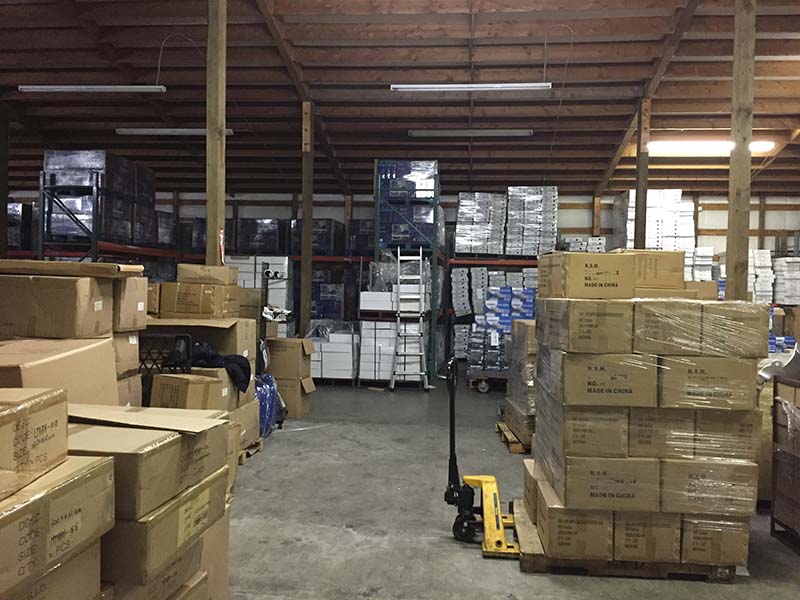
The thing with 3PLs is that they are mostly very old school. Many of them do not have websites or have very poorly designed websites. If you're like me you probably use a company's website design as a sign of reliability and trust – don't do this with 3PLs, in general website design doesn't necessarily reflect good or bad service for a 3PL.
You are going to find 3PLs exist in one of two forms:
- Very large (staff 10+) – reliable but you’ll just be a number with no one person being responsible for your products
- Small (staff <10) – not as reliable but someone will know your inventory in and out
Large 3PLs give you the benefit of the fact that they’ll be very reliable for the most part. They’ll be able to control your sudden order onslaughts on Black Friday and Christmas. If you happen to ship a 40’ container into them last minute they’ll be able to handle it. The downside is that no one is going to know your products – it’ll all just be a bar code for them. They’re also going to have higher standards for your products -your items need to be clearly bar coded and they might even expect you to interface with their system.
Small 3PLs have the benefit of the fact that someone at the company is going to know and care about your products. If you want Peter the Packer to open an item and make sure none of the items are broken before you send it to a very important customer, they’ll do it. The downside is they often don’t have the capacity to adequately handle the ebbs and flows that are occurring in logistics throughout the year. Getting your items shipped in a timely manner around the big holidays may be a challenge for them. If you’re overstocked they may also have problems finding storage room for your products.
Remember that wherever you select your 3PL you are likely creating sales tax nexus in that state. How much you care about this is up to you (there's thousands upon thousands of FBA sellers essentially ignoring their sales tax obligations) but it's something to be aware of.
Pro-Tip: Pick a 3PL as Close and/or Convenient to You As Possible
You’re probably using a 3PL so you don’t have to deal with inventory headaches but there will probably come a time when you need to visit your 3PL to see your inventory in the flesh (I know people who have never seen any of their products shipped from China but this is the exception). The first time you find out all of your items have been bar coded incorrectly, trust me, you’ll want to be examining your inventory personally. Therefore, if you can, try and pick a 3PL as close to you as possible. Obviously if you’re in Alaska you’re probably not going to go with a 3PL in Anchorage, AK, but Seattle would probably be a good choice.
How Pricing at a 3PL works
There are a lot of different things that a 3PL will charge you for. In my experience a 3PL which is advanced enough to know when and how much to charge you is most often a better fit than someone who makes it up on the fly. Here are some examples of what a 3PL will charge you for:
- Receiving inventory (including destuffing a container)
- Pick and Pack Fee
- Storage Fees
- Labeling Fees
- Pallet assembly fees
In general, most 3PLs are going to charge you anywhere from $1-3 per item (strictly in their fees, not in shipping fees) in what is termed pick and pack fees depending on your volume. They will also charge you monthly storage fees. Industry averages are $2.64 per pick and pack fee and $13.84 for pallet storage. If you're under 10 packages a day you won't have much leverage, if you're over 100 per day you'll have lots of leverage, and if you're somewhere in between you'll be able to negotiate a bit.
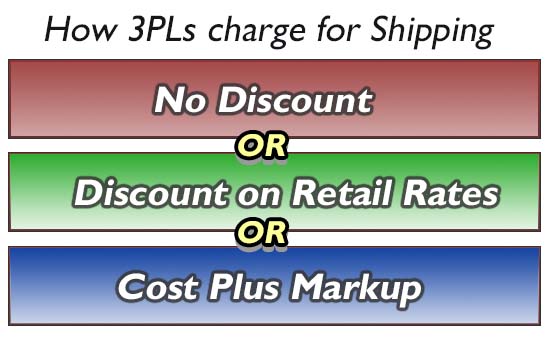
An additional way that many 3PLs make a lot of their money is by not giving you their full UPS discount (i.e. they pay $15 to ship a package but charge you $17). Shipping will likely be your largest expenditure so you need to figure out what their policy on this is. They will charge you shipping based on one of three models: no discount, cost plus, or a discount on published rates. Most 3PLs will offer a discount on published rack rates but I personally prefer cost plus as it's the most transparent of the three models.
Here's a very thorough example of 3PL fees based on medium order volume.
It's also important to ask your 3PL if there is an initial setup fee as many can charge $100-500 to set you up. If you're negotiating with your 3PL and they charge a setup fee this is a good place to start your negotiation and to ask to have this waived.
Questions to Ask Before Selecting a 3PL
In my experience the two most critical items to determine about your 3PL are: what are their handling times (and how reliable)? And, how reliable is their inventory management? For the 3PL I used to deal with, their handling times during our peak seasons could sometimes become very dangerous. For example, it could take 2-3 days to ship orders out. FBA orders could take 1-2 weeks to be shipped into Amazon FCs. All 3PLs experience delays at some point but it's a question of the frequency of these delays. Ask the 3PL if they have guaranteed handling times and what happens if they miss those deadlines. Also ask if they hire more staff around the holidays to handle higher volume.
The other thing to be aware of is how much product does the 3PL lose. If you work with a 3PL long enough eventually they'll lose stuff. You want to make sure they lose a single widget once a year not a pallet of goods every other month. You'll also want to ensure they pay out if they lose stuff and it's not pulling teeth to get them to pay. If and when you visit the 3PL you want to see a well organized and neat warehouse. If they have security measures in place to avoid employee theft this is even better.
Here's a list of some questions to ask and consder when selecting a 3PL:
- Guaranteed handling times? What happens if they're late?
- Do they hire more staff around busy shipping times, i.e. Black Friday and Christmas?
- Can they label items?
- Can they inspect returns?
- Can they place inserts in boxes?
- Is there a surcharge to place packing slips in boxes?
- Is there a setup fee?
- Can they handle mail and/or mail forwarding/scanning?
- Can they handle custom packaging (i.e. your branded shipping boxes) and, if so, is there a surcharge for it?
- Do they provide insurance on your inventory or do you need to buy/provide it?
- Can you come to the warehouse any time and view your products?
- Can they offer a space for photography or other staging?
- Can they integrate with your ecommerce platform?
- Are they familiar with Amazon FBA?
- Can they handle a small number of orders? (if you’re a smaller merchant)
- Can they create pallets for you?
- If you’re handling food products can they handle food grade requirements?
How Will Your 3PL Integrate Into Your Ecommerce Systems?
This may be an important question to ask when considering a 3PL: how will they integrate with your ecommerce systems?
If you're smaller you may be OK with no integration at all. You simply manually email the 3PL your order list and/or instructions. This can actually work to a fairly large scale especially if you have VAs doing the work.
For larger ecommerce companies, you probably need your 3PL to be tied into your order management software, shopping cart, or other software. Some companies may easily integrate with your system free of charge, others may charge for it, and many may not be able to integrate at all.
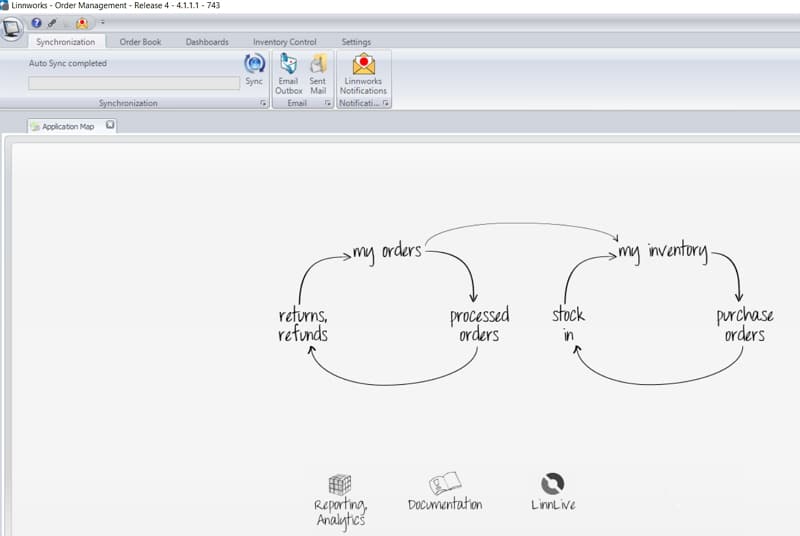
For my previous company we used Linnworks order management software to automatically email PDF packing lists to our 3PL at set times every day. It was an ugly hack but it worked.
This is the one nice thing about using Amazon FBA: most ecommerce software worth its weight will integrate with Amazon.
Amazon FBA – the Good and the Bad
And now we get to the big elephant in the room: Amazon FBA. Amazon FBA is part sales channel and part logistics. As you probably know, they do all the logistics work when someone orders something off of Amazon. However, Amazon also has something called multi-channel fulfillment which allows you to have Amazon ship your products for non-Amazon orders, i.e. eBay and Shopify.
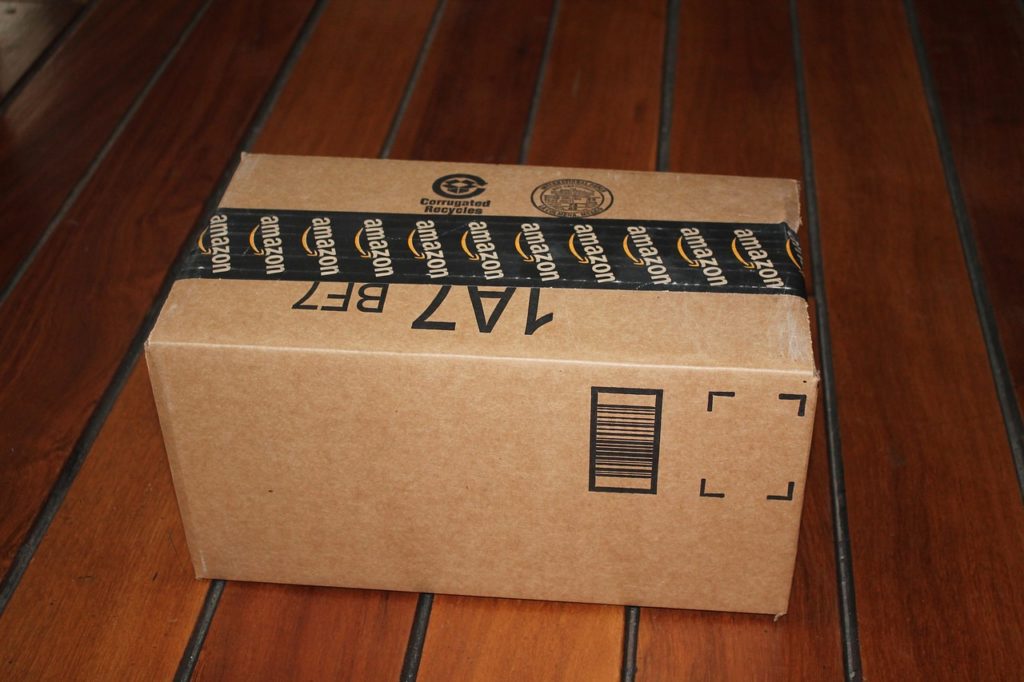
There's a lot of great things about Amazon. Remember how I said that two of the biggest things to look for in a 3PL are reliability and inventory management? Well, Amazon is one of the most reliable 3PLs for shipping and although they lose a lot of stuff, they are quick to compensate you for this when it happens.
Good things about using Amazon FBA as a 3PL
- EXTREMELY reliable
- CHEAP 2nd day rates
- Reliably compensate you for lost items
There are a couple of nasty things about using FBA as a 3PL though. First, their storage rates are anywhere from expensive, during non-peak, to downright highway robbery during peak (October to December). Amazon also now uses Amazon branded boxes for all orders (including multi-channel fulfillment) so you lose branding in that regard. Amazon FBA also does not offer international fulfillment so if someone from Canada orders from your website then you cannot ship to them UNLESS you have inventory at Amazon.ca FBA. Finally, Amazon is probably already responsible for a lot of your business and allowing them to handle your logistics for non-Amazon orders gives them even more control over your universe.
Bad things about using Amazon FBA as a 3PL
- Expensive storage rates from January to September and OUTRAGEOUS rates from October to December
- Amazon branded boxes for non-Amazon orders
- No international fulfillment
- More eggs in Amazon's basket
When to Bring Logistics in-house?
The business answer to the above question is to bring logistics in-house when it makes financial sense, i.e. when the cost of using a 3PL is more than the cost of running your own warehouse. Depending where you are in the country most people can probably afford to rent or lease a small warehouse space and hire a full time employee for around $5000 per month. Assuming $2 per item as a pick and pack fee, this means if you're shipping 2500 items or more per month you're at the critical point where you must weigh the pros and cons to running your own warehouse. Many businesses also get to the point where they can't outsource logistics entirely and they need to bring it at least partially in house. For my previous company I was at this juncture and I actually made the decision to sell my company rather than deal with the stress of managing a warehouse.
However, as we all know, entrepreneurs don't always make decisions strictly based on what makes business sense only. There's a lot of personal factors that go into deciding to bring logistics in house. Here are some things to consider:
- Do you want to have the headaches of hiring and managing a full time warehouse staff member?
- What happens when this staff member is sick or on vacation?
- Can you handle peaks in order volume?
There are advantages of course to having your own warehouse. First, you can personally inspect each item that is received into your warehouse and that leaves your warehouse. This isn't important except in fringe cases such as when there are problems or when catering to a high priority customer/client, but boy is it nice then. Second, your full time warehouse employee probably doesn't need to be picking and packing eight hours a day so they can do other things around that time.
Conclusion
This should cover most of the important things to consider when selecting a 3PL.
Do you currently work with a 3PL? If so, have you had completely positive experiences or have you had any horror stories as well? If so please share below. And for anyone with questions about selecting a 3PL, please ask away in the comments below as well.
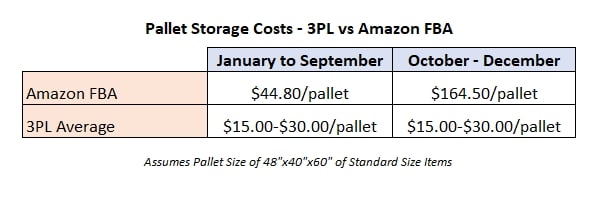
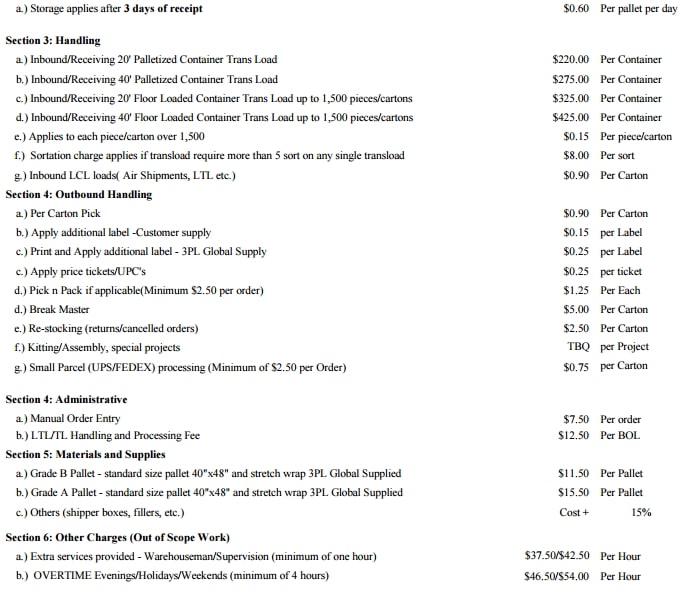




What an incredibly informative and comprehensive guide on 3PLs! This blog post serves as an absolute gem for anyone navigating the world of ecommerce. Thank you for shedding light on the often overlooked but crucial world of 3PLs in such a clear and engaging manner!
Thank you Dave for another great article. This is super helpful during a time Amazon imposes limits on both overall storage space and restock units. I have two quick questions for you:
1. Can you please recommend a few reliable 3PLs in LA and Long Beach area to be used as a middle man between my Chinese suppliers and Amazon FC?
2. I live in New York, does it make sense to have the 3PL in California to save on int’l shipping charges and transit time?
thank you Dave. This was a very interesting read. It is very generous of you to share all of this.
Glad to hear that it helped!
Any recommendations for 3PL in Texas?
Your article was super informative, thank you! Any recos for a 3PL company near Miami, FL? And for one near Madrid, Spain?
Any recommendations for a 3pl near Long Beach, CA? Thanks!
Try 3pl Global.
This article is The Ultimate Guide to Finding and Choosing a Third Party Logistics Company (or 3PL). I did not have any idea regarding what a 3PL is but after reading your article I now have a pretty good understanding about it. Thank you for posting this detailed article.
Thanks Raj.
It is a really good analysis of 3PL companies and how it is more beneficial and convenient. All the points explaining the cost of transport, warehouse, and inventory are so used to maintain good supply chain management and increasing business performance. The 3PL has it’s own benefits and demerits. Your article describes The ultimate guide to finding and choosing a third party logistics company (or 3pl).
Thank you.
I hope Fedex Fulfillment jabs the market a bit. The entire purpose of all of this is not to increase margins, but to shift towards independence away from Amazon.
Not sure if they can, but agreed Amazon is getting dangerously close to having very dominant control.